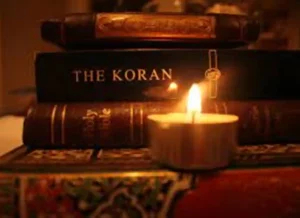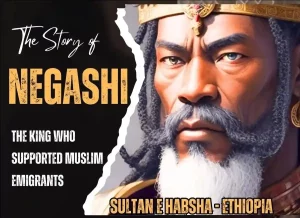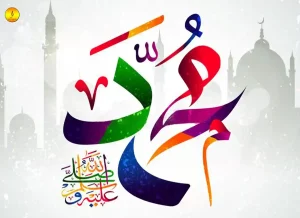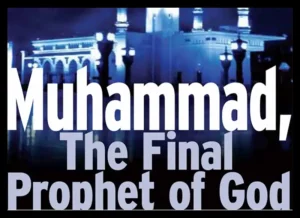Letter to Heraclius, King of Qustuntuniya (Constantinople)

Heraclius, the king of Qustuntuniya (Constantinople) or the eastern part of the Roman Empire, was a Christian. Hazrat Dehya bin Khalifa Al-Kalbi had carried the letter of the messenger (PBUH) to him. He met the king at Baitul Maqdis (Jerusalem). The King held a special and elegant court for the messenger and asked many questions about the messenger (PBUH). He then also considered it necessary to investigate the matter further. For that purpose he asked his officials to present before him an Arab who was present in his country at that time. By chance Abu Sufyan was in Syria at that time with a group of traders. He was taken to Baitul Maqdis and presented before the king. Qaysar (Caesar) told the associates of Abu Sufyan that he would ask some questions to Abu Sufyan and that if he answered any question wrongly, they should tell him so. Those days Abu Sufyan was a very bitter enemy of the Prophet (PBUH). He himself narrated later that if he had not feared that his associates would expose him, he would have told lies, but under circumstances he had to speak the truth. The dialogue that went on between the two is recorded in history as follows:
- Qaysar: How is the lineage of Muhammad PBUH)?
- Abu Sufyan: Honorable and well reputed.
- Qaysar commented, “It is true that a prophet comes from a noble family so that people do not shy away from following him.”
- Qaysar: Did any one else claim to be a prophet before him in Arabia?
- Abu Sufyan: No.
- Qaysar commented again:“If it were so, I would have thought that he was simply imitating him.”
- Qaysar: Did he tell lies before? Was he ever accused of telling a lie?
- Abu Sufyan: No.
- Qaysar commented:“It is not possible that a person who did not ever tell a lie about the people, tells a lie about God.”
- Qaysar: Had there been any ruler in his family?
- Abu Sufyan: No.
- Qaysar commented: “Had this been the case, I would have thought that by claiming prophethood he intends to acquire the lost glory of his forefathers.”
- Qaysar: Are there more of the poor and the humble among his followers or the chiefs and the strong?
- Abu Sufyan: The poor and the humble.
- Qaysar commented: “The initial followers of a prophet are
- usually the poor and the resourceless persons.”
- Qaysar: Are his followers increasing in number or decreasing?
- Abu Sufyan: They are on the increase.
- Qaysar commented: “This is a sign of the true Faith (Iman) that it grows slowly and ultimately reaches its zenith.”
- Qaysar: Did any of his followers renege his religion?
- Abu Sufyan: No.
- Qaysar commented: “This is the effect of the sweetness of Faith (Iman) that when it occupies one’s heart and permeates one’s soul, it does not leave him.”
- Qaysar: Does he sometimes dishonor his covenant?
- Abu Sufyan:No. This year we have entered into a treaty with him and we have yet to see how it fares.
- Abu Sufyan said later that here only he was about to add a sentence from his side.But Qaysar did not pay attention to it and commented, “Indeed a Prophet does not violate a covenant. This is the practice of worldly people.
- Prophets are not the seekers of the world.”
- Qaysar: Did you fight a battle with him?
- Abu Sufyan: Yes.
- Qaysar: What was the result?
- Abu Sufyan: Sometimes he won (in Badr) and sometimes we did (in Uhud).
- Qaysar commented, “This is what happens to God’s prophets, but at the end God’s help and victory come to them.”
- Qaysar: What does he teach?
- Abu Sufyan: To worship one God, to renounce worshipping idols that our forefathers practiced, to perform Salah, to observe fast, to adopt truthfulness and piety, and to treat relatives with kindness.”
- Qaysar commented:“These are the signs mentioned to us of the Prophet (pbuh) who was to come. I felt that the time was near for his arrival, but I did not think that he would be born in Arabia.” He then told Abu Sufyan, “If you have spoken the truth, then one day he will surely be the ruler of the land where I am sitting now (Shaam and Baitul Maqdis). I wish I would have been able to meet him and serve him as a submissive follower.”
After this, the letter was read aloud in the court. The courtiers made noise at it to express their resentment. Abu Sufyan and his associates were then turned out of the court. Abu Sufyan said later that since that day he developed a feeling of disgrace for himself and a conviction of the honorable future of the Prophet (pbuh). ( Sahih aAl-Bukhari, Kitab Bada`al Wahi, Sahih Muslim, Kitabul Jihad was Siyar.)
Letter to Kisra, King of Iran
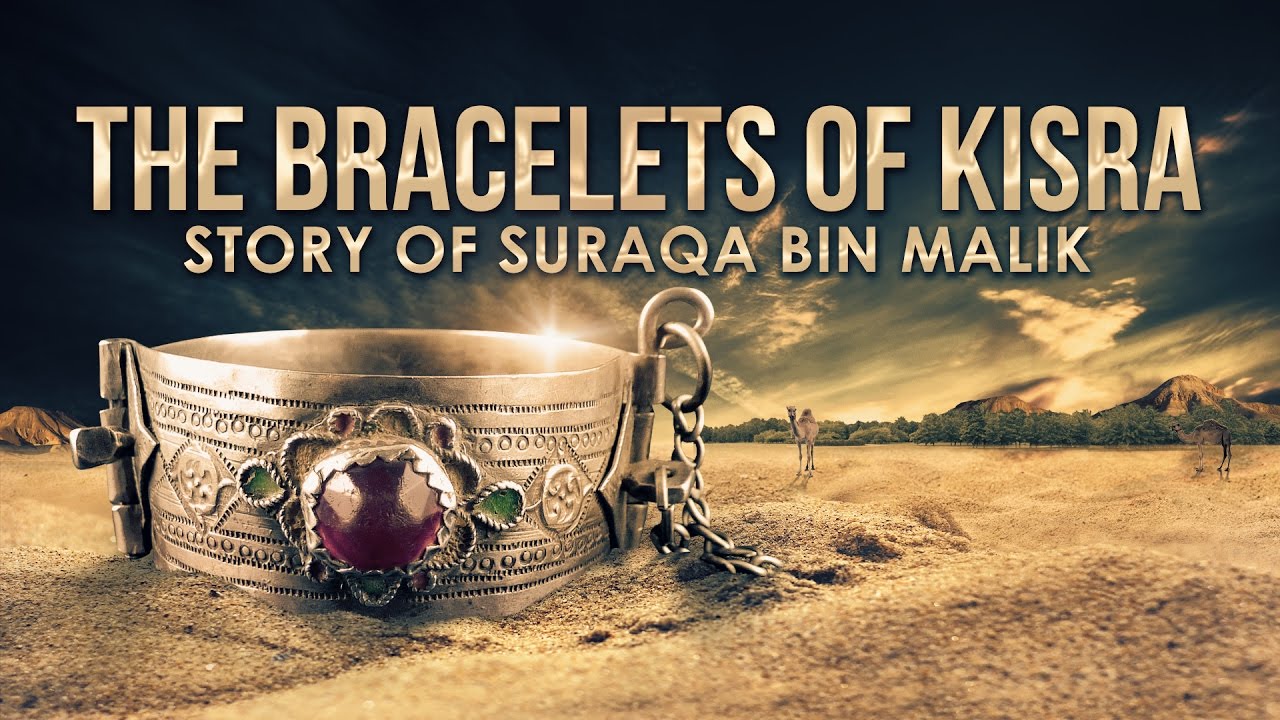
Khusroe Parviz Kisra was the ruler of Iran, which constituted half of the eastern part of the world. He was a Zoroastrian by faith. ‘Abdullah bin Huzafa was the Prophet’s messenger to him. The letter read as follows:
“In the name of Allah, Most Beneficent, Most Merciful.
From Muhammad, the messenger (PBUH) of Allah, to Kisra, the chief of Faaras (Iran). Peace on him who follows the right path, bears faith in Allah and His Prophet, and testifies that there is no deity worthy of worship except Allah, and that Muhammad is His slave and messenger. I invite you to the message of Allah. I am Allah’s Prophet and have been sent to mankind to warn all those who are still living of His punishment, so that the ones who deny the God’s word may not claim later that they were not informed. Accept Islam. You will remain safe. Otherwise, the burden of the sin of unbelief of your Magain (Majoosi) subjects will be on you.”
Khusroe was highly enraged by reading the letter and said in arrogance, “An ordinary subject of mine writes me a letter and puts his name in it before mine!” He commanded Khusroe Baazaan, his viceroy in Yemen who controlled the whole Arab world, to arrest the Prophet (PBUH) and send him to Persia. Baazaan sent a troop of soldiers in the command of Khurr Khusra, along with a local military officer named Baabawayh, to Madinah. He instructed Baabawayh to try to gather full information about the Prophet (PBUH) and take him to Khusroe. He further instructed Baabawayh that if the messenger (PBUH) refused to go with him, he should return and report to him.
When these officers visited the messenger (PBUH) in Madinah, he asked them to see him the following day. The next day when they appeared before the Prophet (pbuh), he told them, “Last night Allah killed your king. Go back and verify it.” They returned to Yemen where the news had already reached that Khusroe’s son Sherwiya had killed him and had ascended the throne. This made Baazaan inquire more about the Prophet (pbuh) – his habits, moral character, and teaching – after which he accepted Islam and a large part of the residents of the country also professed Islam. The Prophet’s messenger to the court of Kisra had earlier reported that when he had told the Prophet (PBUH) after returning from there that Kisra had torn his letter into pieces, he had immediately uttered the words: “He has torn asunder the document authorizing his nation to rule the country.” (Sahih Al-Bukhari records the incident of Kisra’s tearing off the letter of the Prophet and his foretelling the end of Kisra’s rule: Kitabul Maghazi, Bab Kitabun Nabi ila Kisra wa Qaysar.)
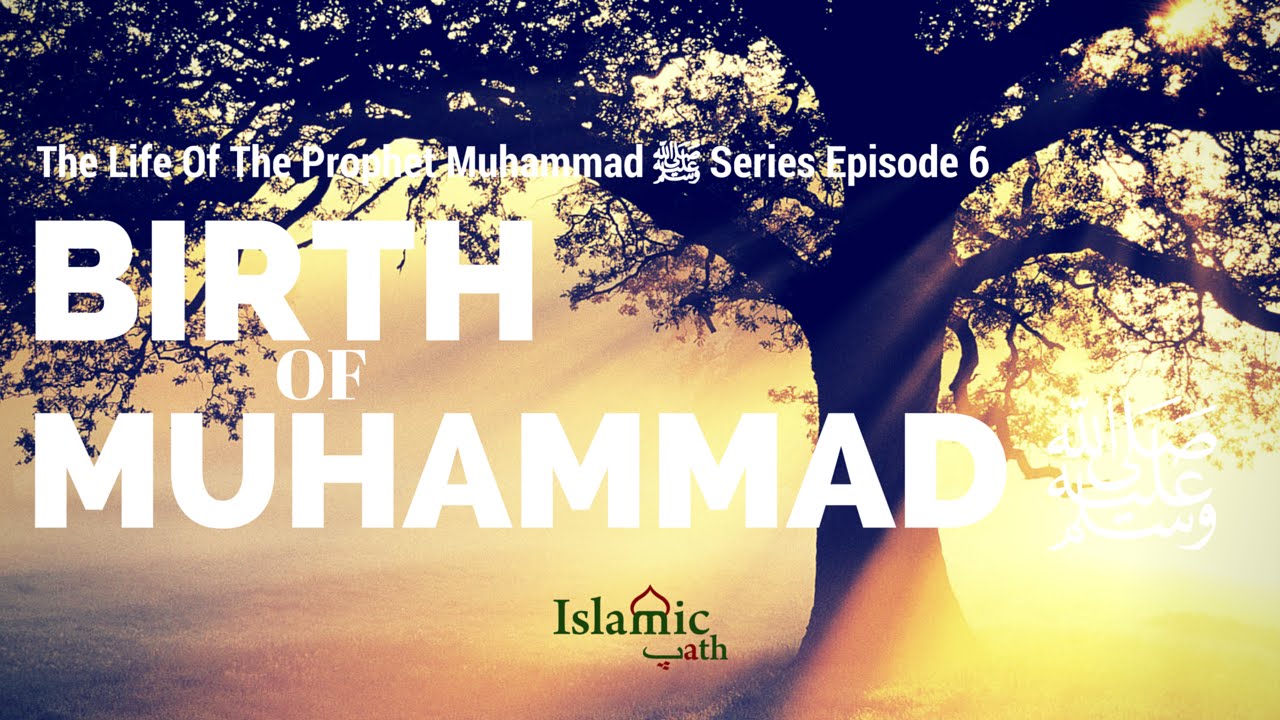
The readers have to stop here for a while and ponder on the situation. Is any relic of the great nation, which had ruled the country for the last four, five thousand years, found in the world now? This was a superpower that had defeated the great Romans on several occasions. The answer is, without any fear of refutation, in the negative.
Learn more: These are some more informative topics for you.
- What did give commandant to The ‘Abd Al-Qays delegation?
- What did Muhammad give to The Thaqeef Delegation?
- When did Daws delegation accept Islam?
- When were the letter to the king of Bahrain written?
- What were the letters to the king of Damishq written?
- When Preaching Islam to Rulers were started?
Our Best Android Apps
About CEO Al-Asad Online
Hafiz Abdul Hameed
Master In Islamic Studies
(Tajweed, Waqf)
Web Developer/Administrator
Web Content Writer
Blogger, SEO Expert
Graphic Designer
WhatsApp: +92 3017363500
E-Mail: hdhuddi@gmail.com
https://youtu.be/GIpgvLF652s


